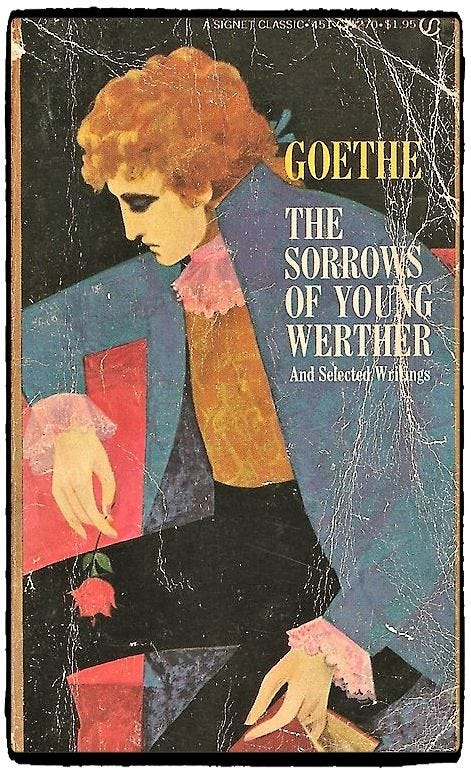My coworker mentioned the book she was reading during lunch break—a casual rumination on the ethics of suicide.
She shared how the author argued: if life is a gift, each person has the right to reject that gift. She shared how he wrote that, in many ways, suicide is the purest expression of personal autonomy.
I mentioned that I didn’t want suicide to become a casual topic in my mind. I thought about how—in the context of this conversation—it somehow seemed politically incorrect to mention that I was against suicide.
I mentioned The Sorrows of Young Werther, and how Goethe romanticized these extremes through the letters of a young German man. I mentioned how legions of young men started dressing just like Werther (in a blue suit and yellow vest) throughout Germany, and how they carried copies of Young Werther in their pockets.
I mentioned that, in the end, Werther commits. And legions of young men throughout Germany, with Werther in their pockets, committed. I mentioned how Goethe was left with this legacy for his readers.
Yet, once Werther’s letters stop, Young Werther concludes not with the bang of his pistol, but with hours of pitiful and needless pain. Goethe writes how broken Werther seemed, how utterly alone and young his body appeared. Goethe writes that Lotte wept for his unmarked grave on the far side of the graveyard.
Goethe writes that some began to fear for Lotte’s life as well.
I thought about how no person has the right to kill any other. I thought about how in the decreasing power of religion and increasing acceptance of every religion we have no universal moral code. I thought about who gives us that right over ourselves. I thought about my current read, Martyr!, and the idea of making your death matter through a well-lived life.
I saw the tense backs of our other coworkers and turned to my desk. We kept working.





When parts become a whole, what becomes of the parts?
Wonderful.